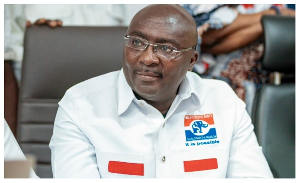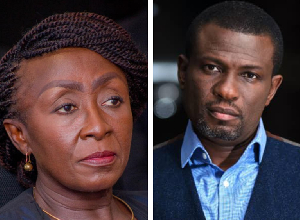Ghana will be exporting 200,000 metric tonnes of maize this year to relieve the pressure on farmers whose output has exceeded local demand, Minister of Food and Agriculture Clement Kofi Humado has said.
“I have given about 70,000 metric tonnes of maize to the World Food Programme (WFP) and there is a company in Kumasi called Premium Foods that is also taking quite a large tonnage for export. Most of these exports are going to Mali,” he said. “Ghana has enough grain (rice and maize) and cassava for at least the next two years,” he added.
Mr. Humado, who was speaking at the signing of two financing agreements between government and the Food and Agriculture Organisation (FAO) in Accra, said rice production has also picked up substantially with local output now accounting for 66 percent of the rice market.
The two agreements were valued at US$31.6million and intended for the development of agriculture and a sustainable environment. “Our focus is now on excess, not production, because we have passed that stage.
We have so much in the system; farmers cannot find market for the produce. The maize is there; cassava farmers have left the produce in the soil waiting for markets and all that,” Mr. Humado said.
“There are some varieties of rice like brown rice produced from Lolobi and Santrokofi near Hohoe in the Volta Region, which are being exported to Angola, UK and other countries.” The Minister said the poultry and piggery sectors will be supported through financing to enable them purchase the excess grain of farmers.
With cassava, he said the Ministry is working with some breweries -- Accra Breweries and Guinness Ghana Breweries Limited -- to set up processing plants using cassava for beer. He said the Ministry is also bringing in investors to put up warehouses across the country, “because we recognise that without reducing post-harvest losses, all our future attempts to increase production will come to zero”.
Under the first agreement, the FAO will contribute US$3.6million for the implementation of a Country Programming Framework (CPF) to support more strategic and focused engagement between government and the FAO through its technical cooperation programme.
The FAO and the government are also to jointly mobilise US$28million to finance the Agricultural Sector Wide Approach (AGRISWAp) programme intended to enhance the planning, harmonising and coordination of interventions in the sector under the second agreement.
FAO Country Representative Lamourdia Thiombiano said the CPF is co-owned by the Government of Ghana and the FAO, and explained that it is a planning and result-based management tool that will yield many dividends for the agricultural sector.
He gave the assurance that development partners and donor organisations will be engaged and presented with programmes and projects drawn from the CPF, to draw resources to finance those programmes and projects.
Deputy Finance Minister Cassiel Ato Forson commended the FAO for its continued support to Ghana in the efforts of contributing to achievement of national development, and food and nutrition security.
Business News of Thursday, 22 August 2013
Source: B&FT

















